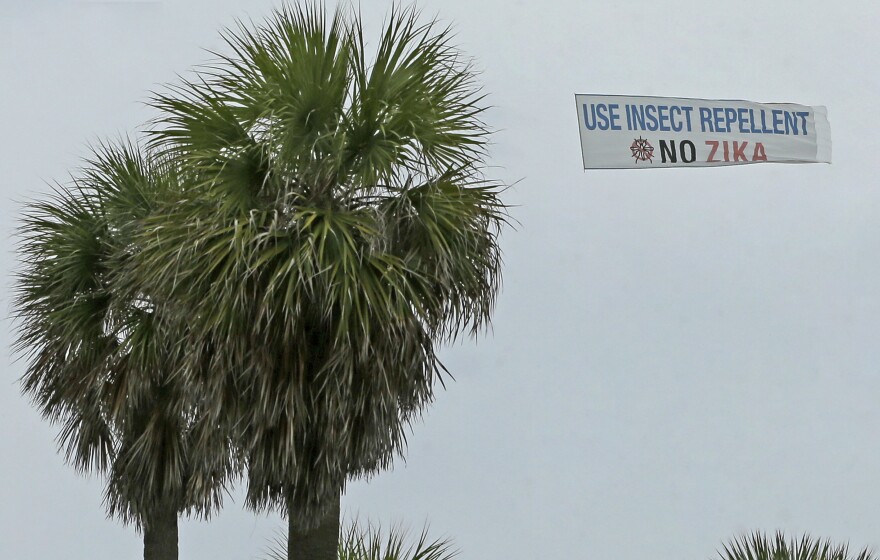With mosquito counts in Miami Beach rebounding over the Labor Day weekend, Miami-Dade officials announced on Tuesday that they will begin aerial spraying of the pesticide naled in South Beach this week — a move certain to draw political opposition from some city leaders.
Spraying is scheduled to begin at 5 a.m. Thursday between Eighth and 28th streets from the beach to Biscayne Bay, covering much of the zone where mosquitoes are transmitting the virus, county officials said. The plane will fly 300 feet over the ocean and rely on winds to carry the pesticide onto the barrier island. The aerial spraying will continue Sunday morning and two more times during the next few weekends.
The announcement represented a reversal by state officials and the Centers for Disease Control and Prevention, who previously said Miami Beach’s dense urban environment and high-rise buildings made aerial spraying infeasible.
County and city officials said the recommendation came down from the CDC, the state’s Department of Agriculture, Department of Health and Gov. Rick Scott after mosquito counts increased during the holiday weekend. Miami-Dade Mayor Carlos Gimenez announced the move Tuesday morning.
“This is the right and safe thing to do at this time,” Gimenez said in a written statement.
The Beach commission will meet Wednesday morning for a workshop on naled. One commissioner, Michael Grieco, called for a special commission meeting after the workshop to make sure elected officials can take action if needed. Tuesday afternoon, he said a majority of commissioners declined to convene the meeting.
Grieco said his opposition stems from many residents who are concerned over naled and its potential effects on humans, noting the insecticide is banned in the European Union. Last week, he drafted an ordinance opposing aerial spraying, but with only a workshop and not a special meeting, he can’t present it to the commission for a vote.
Some studies suggest that long-term exposure to low levels of naled can lead to serious health effects for children and infants. But according to the Environmental Protection Agency, small doses of the insecticide can control mosquitoes “without posing risks to people” other than some short-term skin, eye or nose irritation in people who are sensitive to chemicals.
“The choice of spraying naled is supposed to be dependent upon the data and mosquito counts, both of which fluctuate daily on Miami Beach,” he said.
Read more at our news partner, the Miami Herald.





